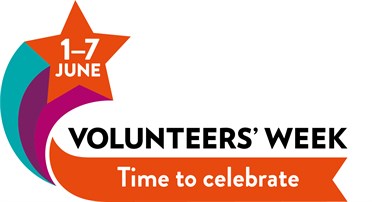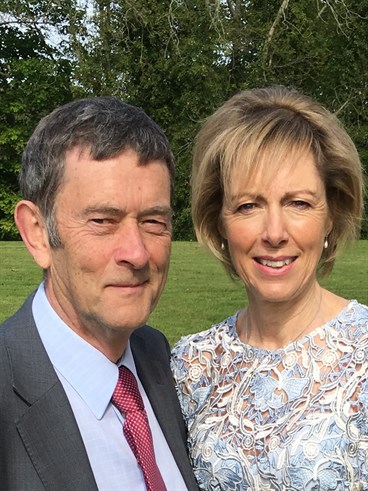John is joint Area Co-ordinator for our Oxford LSG with his wife Cathy.

How it started
My name is John Budd, and I am a Hypopituitarism patient, and also now the Area Co-ordinator for The Pituitary Foundation Oxford Support Group, along with my very supportive wife Cathy.
My pituitary story started in October 2010 when I was working as an IT Management Consultant, and travelling frequently. The first sign that made me realise there was something definitely wrong with me was while cycling on the wonderful Mining Trail in Cornwall, when I suddenly felt abnormally weak and weary, and I had to stop cycling. My eventual diagnosis was somewhat accidental, as I was being investigated by a neurologist for an unrelated problem, but a MRI scan showed an enlarged pituitary, and blood tests confirmed a hormonal imbalance. I started on some replacement hormone medication shortly after. I was sitting in the departure lounge of Edinburgh airport in September 2011 after a hard day with a client group and I suddenly felt exhausted, and realised that I just couldn’t keep working. I was constantly weary, I had mood swings, I was worrying about my health, and had become very introspective. I stopped working shortly after. In 2012 I finally obtained Growth Hormone replacement medication which helped me quite a lot, and in December I had transsphenoidal surgery to remove the pituitary growth, which has not re-grown to date. I am still challenged in various ways, but have found some kind of new equilibrium.
Finding The Pituitary Foundation
I think we first came across The Pituitary Foundation in May 2012, and consulted the endocrine nurse at The Foundation and subsequently attended our first Oxford Pituitary Support Group meeting, held at one of the Oxford colleges. Good grief! I wasn’t the only one with these weird feelings, mood swings, lack of energy, and other problems. Here was a whole room full of people with similar issues! In a way this was sad, but it also made me realise for the first time, I am not alone with this problem. Cathy and I continued to attend many subsequent meetings, making a number of friends along the way.

Becoming the Oxford Area Co-ordinator
The Oxford Support Group moved from being hosted at an Oxford college, to a church hall west of Oxford. Cathy and I continued to attend, enjoying and learning from many interesting guest speakers over that time. We offered to take over the Oxford Co-ordinator role about 3 years ago, which was accepted, and we have continued to hold about four meetings a year. In 2017, through consultation with the specialist nurses at the Churchill Hospital (where most pituitary patients from the Oxford area first come into contact with the pituitary medical support services), we relocated our meetings to the hospital. I think this has helped the group, as patients are usually familiar with this location, and the specialist nursing staff are always on hand at our meetings, which is a great informal way to discuss any challenges anyone has. This year, we hoped to hold more informal social meetings for the group, something we started in 2019, with the aim of bringing the group together a bit more. Needless to say it hasn’t been possible to date to get this off the ground as Covid-19 intervened. Right now, we are still living with lockdown restrictions, and our next meeting is due next week, so we are going to hold it using Zoom videoconferencing instead of a physical meet. This should be interesting and another new challenge for everyone!
The future
I believe the time that pituitary patients (and carers) need the most support is usually when they are first diagnosed, when they may be in a state of disbelief, shock or trauma. Being based at the hospital gives us the best opportunity to reach these people early and with help from the Endocrine clinic we are able to publicise the Support Group. Our aim is to ensure all Oxford patients, but particularly those newly diagnosed, know about our Group so that they can realise they are not alone, and that there are others who have similar problems who they can meet and exchange experiences with. I recently discovered we had an Oxfordshire Fundraising Group Leader, and we are now working together to get some “lockdown fundraising” off the ground for the Oxford Support Group – especially important right now as the Foundation needs our help more than ever, as all normal fundraising initiatives have had to be curtailed.








